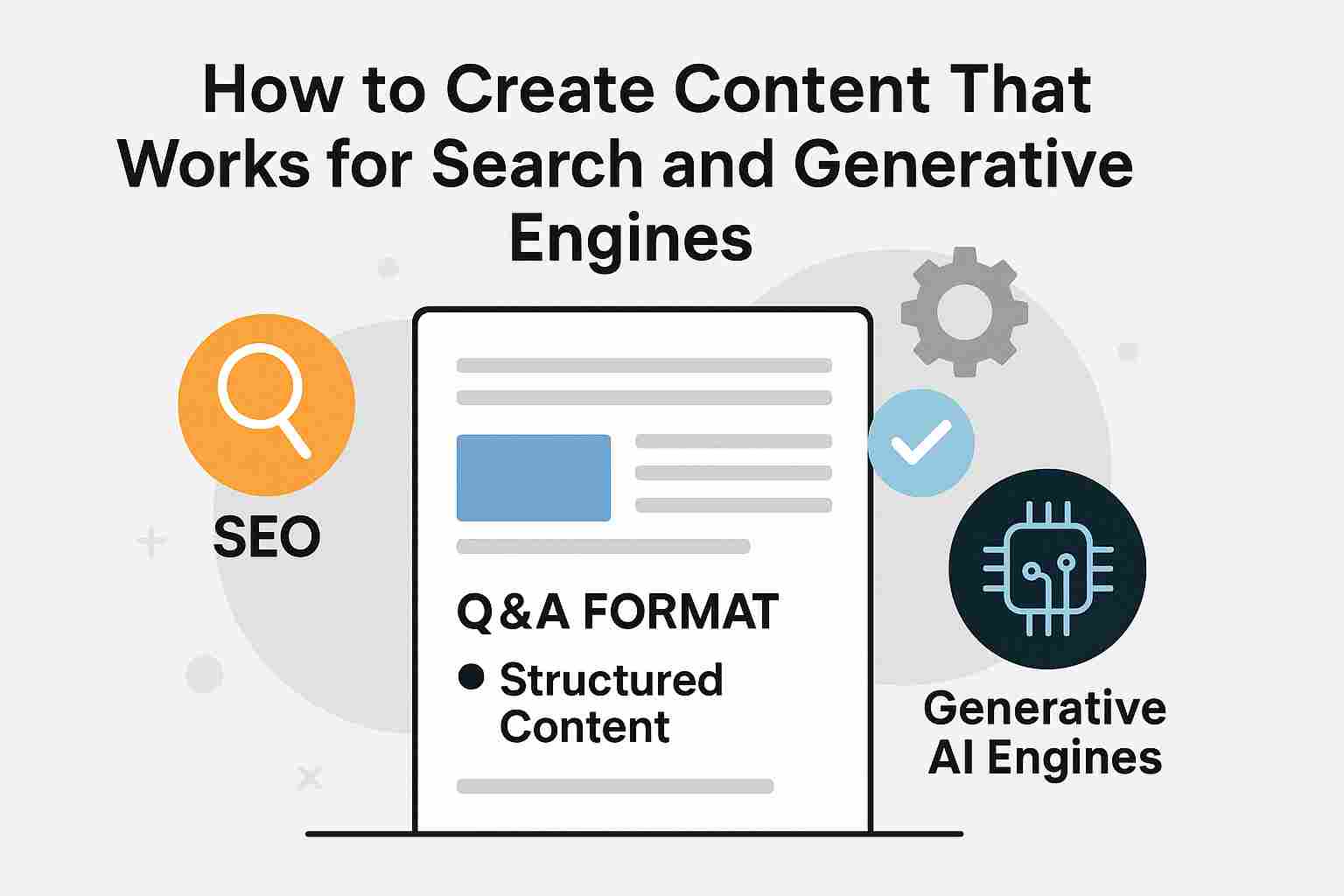Introduction
Ever wondered why your blog posts don’t show up in that helpful chatbot or why you get plenty of pageviews but none of that sweet AI-generated spotlight? Right now, content has to play nicely with both traditional search engines and generative AI tools like ChatGPT or Google’s AI Overviews. It’s a busy world out there and being visible means being flexible.
What’s the difference between SEO and GEO and why does it matter now?
Yep, the rules have changed. Traditional SEO is all about ranking in Google search with keywords, backlinks, titles, and such. But nowadays, generative engines dig for co-citations, structured summaries, and clear, concise content that they can just “lift” into their responses. So to stay relevant, your content needs to be human-first and AI-friendly.
How can structured summaries help AI and SEO?
Short answer: they’re AI candy. Generative models love quick takeaways enclosed in bullet points or clearly marked sections. It makes it easier for them to grab and cite your content accurately. Plus, summaries and key takeaways don’t just serve AI they also keep readers engaged. You can also explore how Google Easter Eggs show creativity in search a fun reminder that even serious platforms value unique, structured experiences.
What role do Q&A formats (AEO) play in modern content?
AEO or Answer Engine Optimization is all about mimicking how people ask questions. For example:
Q: What’s the best way to format content for AI overviews?
A: Use conversational questions, clear headings, schema markup like FAQPage or HowTo, and concise answers right up front.
It aligns beautifully with how generative engines parse and surface content.
Should you still care about backlinks and E-E-A-T?
Yes and no. For traditional SEO, backlinks and strong E-E-A-T signals (Experience, Expertise, Authoritativeness, Trustworthiness) matter. But for generative engines, co-citations (being named alongside trusted terms or brands) can be just as powerful even without a traditional link. If you want a deeper dive, this Search Engine Journal guide on AI search and chatbots explains why clients are increasingly asking about AI in their SEO strategies.
Why do clean structure and metadata still matter?
AI doesn’t interpret JavaScript or hidden content well, so a clean, indexable structure is essential. That means:
- Readable headings
- Alt text, metadata, and accessible URLs
- Clearly organized formatting
It helps both humans and bots visibility, meet credibility. You can also check our in-depth blog on SEO beyond the website in the AI era to see how structured content boosts long-term visibility.
Expert Tip
“As SEO analyst Jane Doe notes, ‘Answer-first content wins in AI citations.’” Think of each paragraph as a pitch: can AI quickly identify the key answer? If yes bonus points.
Conclusion
Creating content in 2025 isn’t just about ranking anymore it’s about being discoverable by both humans and generative engines. Structure matters, questions engage, and clarity wins. Now over to you got thoughts, questions, or ideas on this new content frontier? Drop a comment, ask away, or share your own experiences!
FAQ
A: No way! A hybrid approach works best SEO tactics still drive traffic, and GEO/AEO ensures AI tools cite you accurately.
A: Absolutely if it’s responsibly augmented. AI can help draft but it still needs human oversight for voice and accuracy.
A: Being mentioned alongside a known term or brand without a direct link that can boost your AI visibility.
A: Tracking is tricky many AI tools are black boxes. But keep an eye on snippet and overview traffic shifts. Over time, tools monitoring generative content mentions are emerging.
A: Yes backlinks still matter for SEO and building authority. But don’t ignore co-citations and structured snippets, especially for AI.
